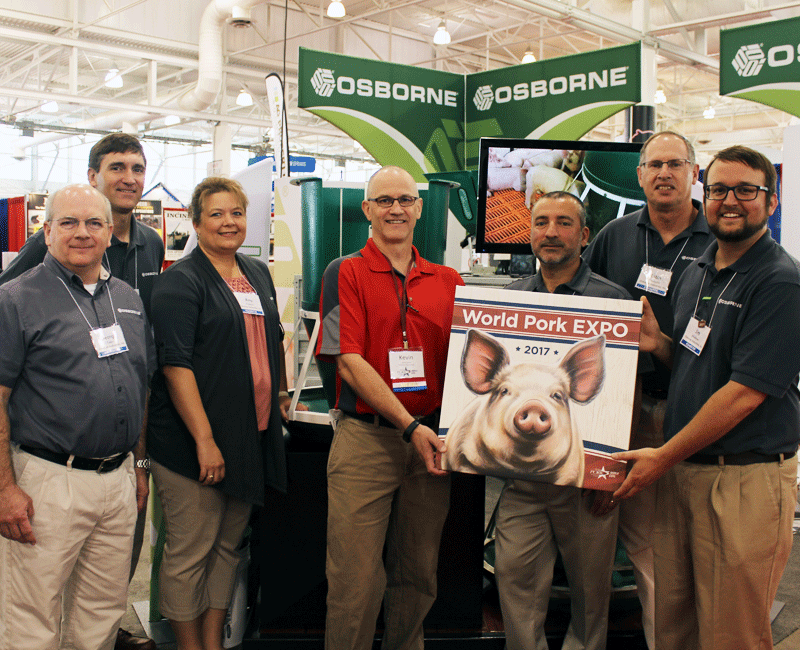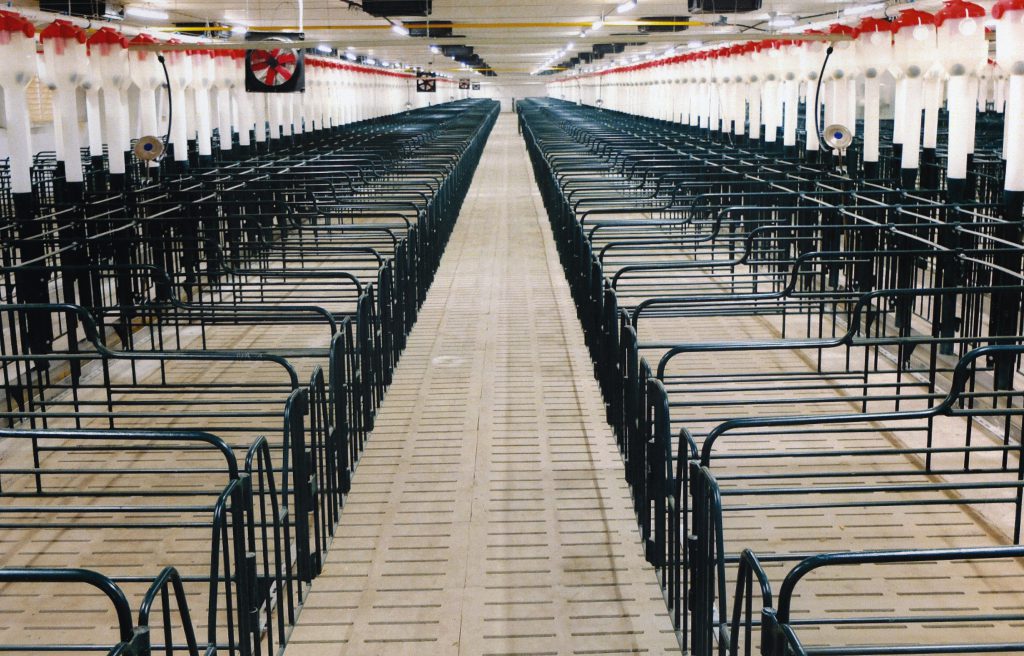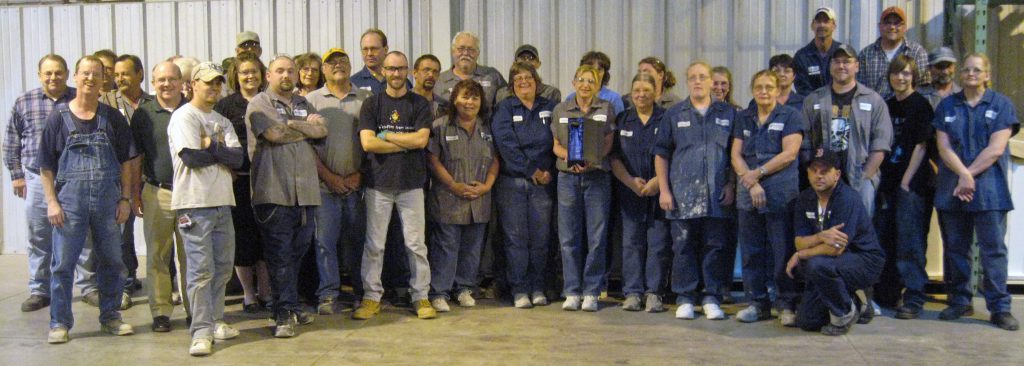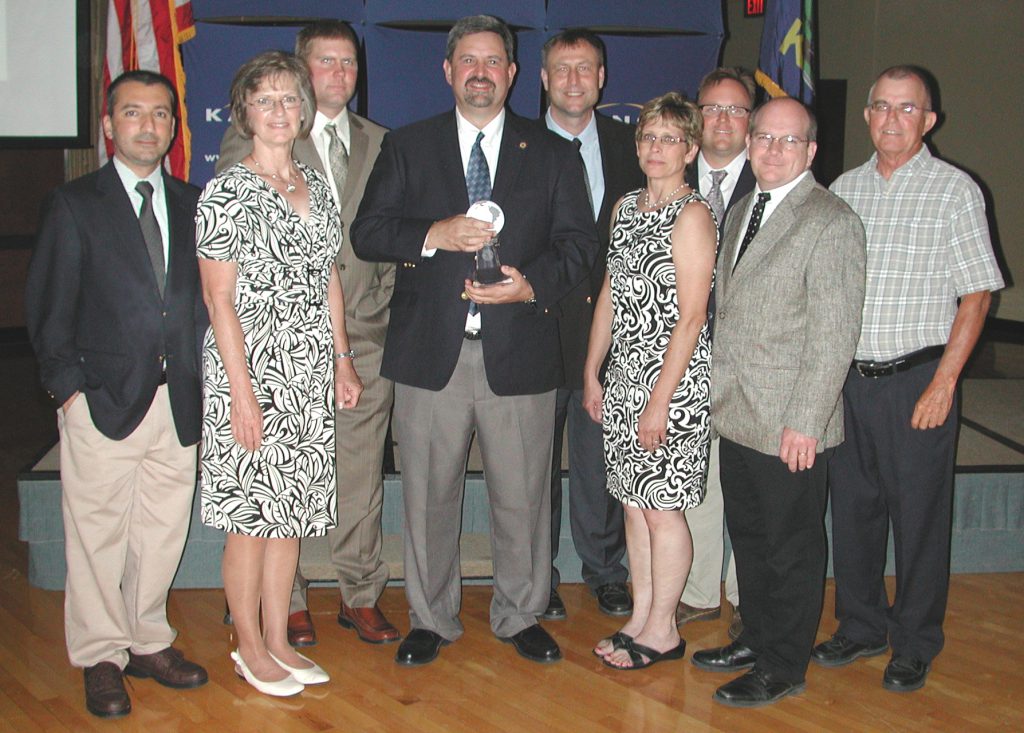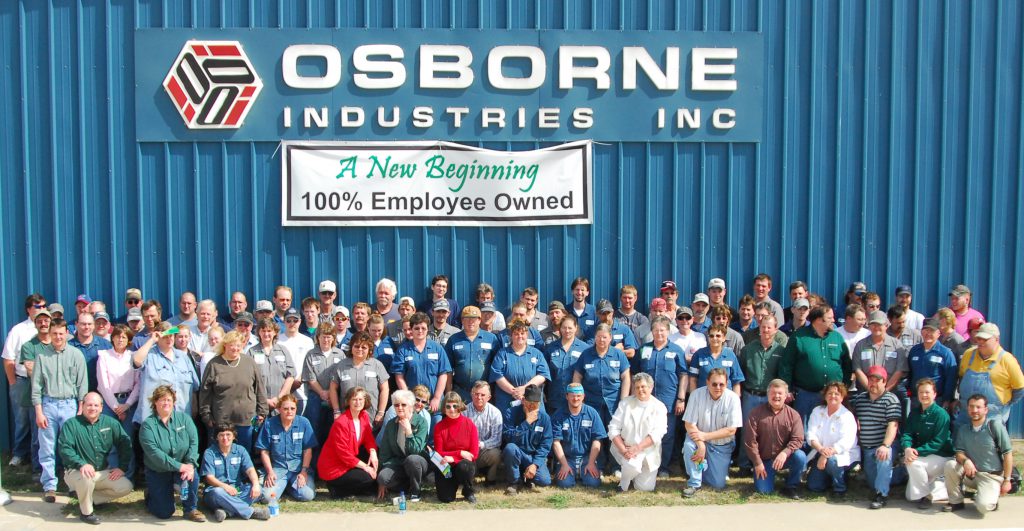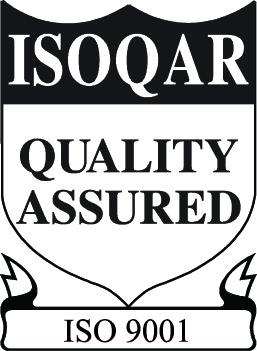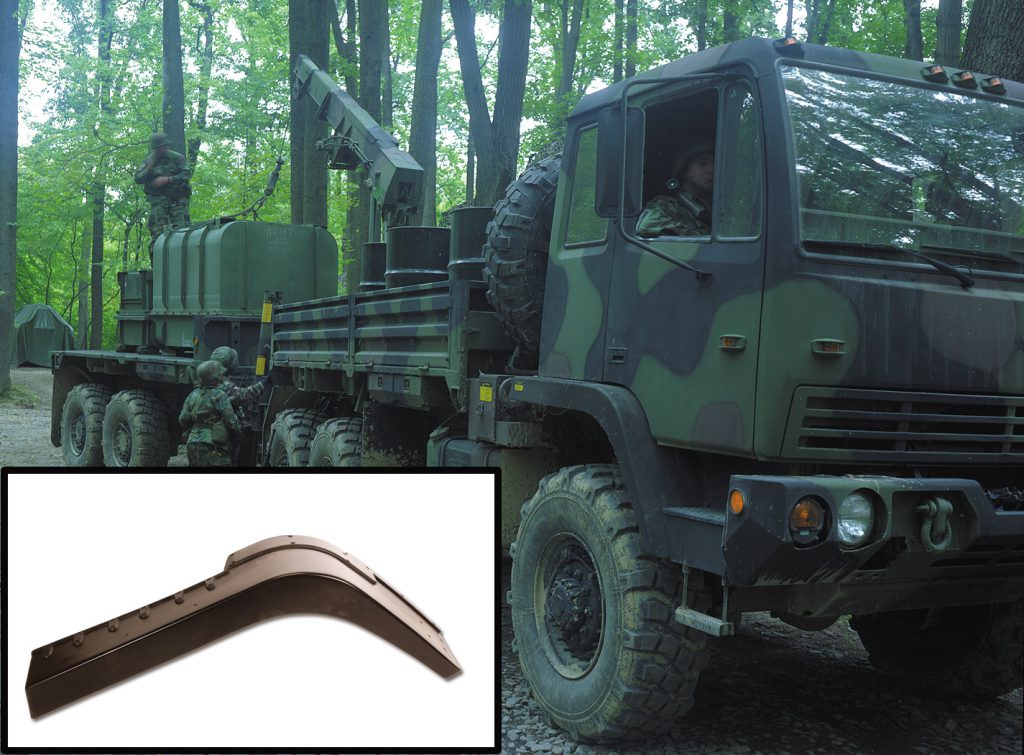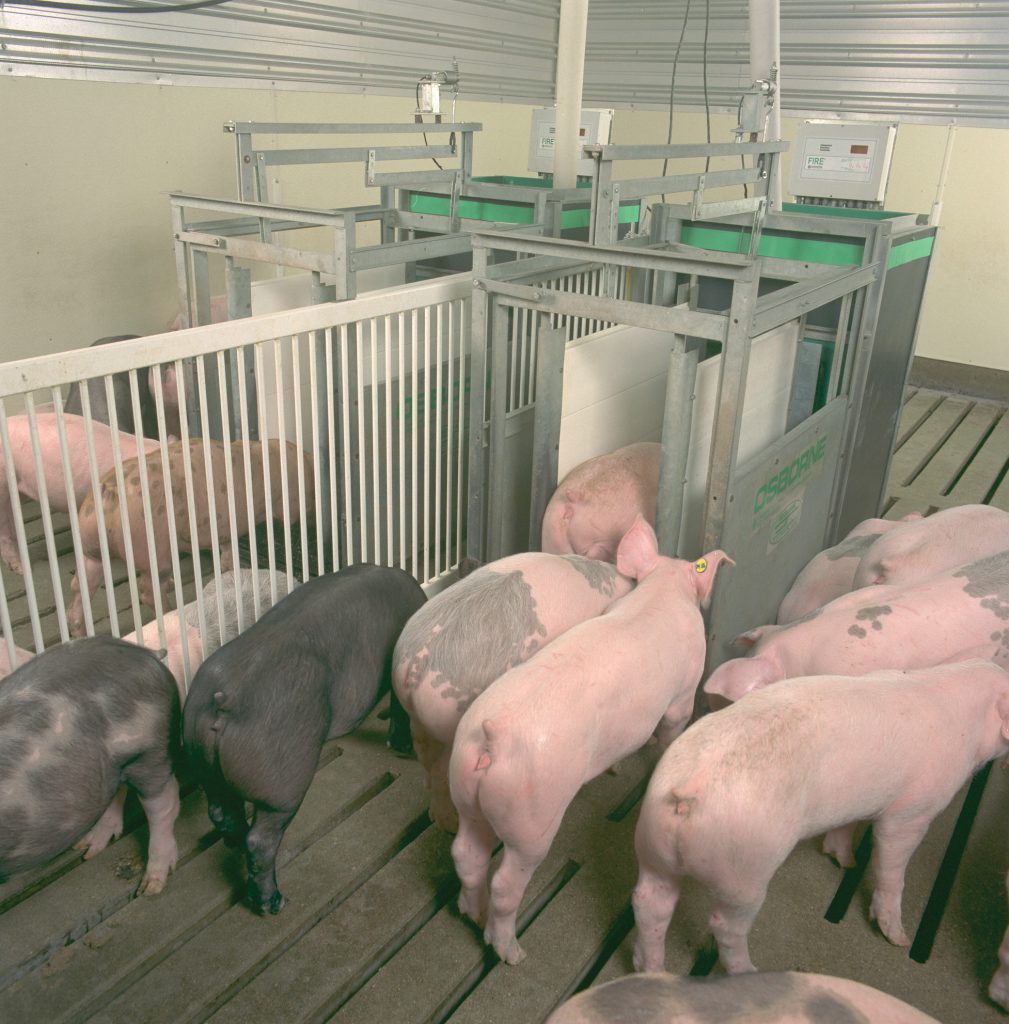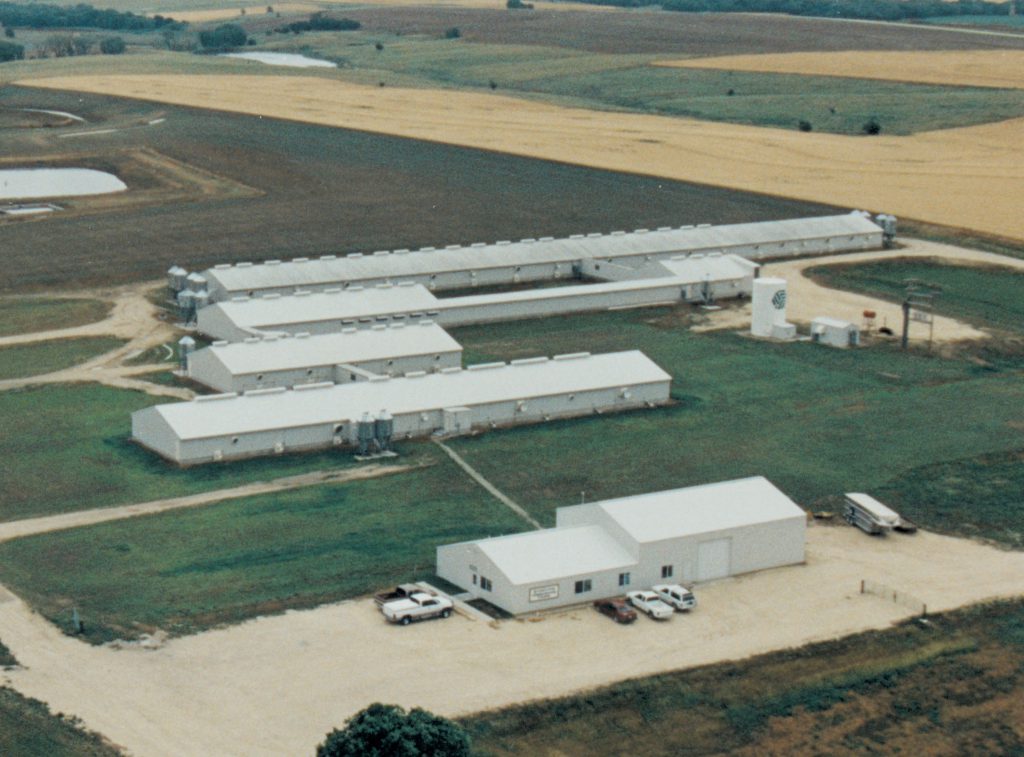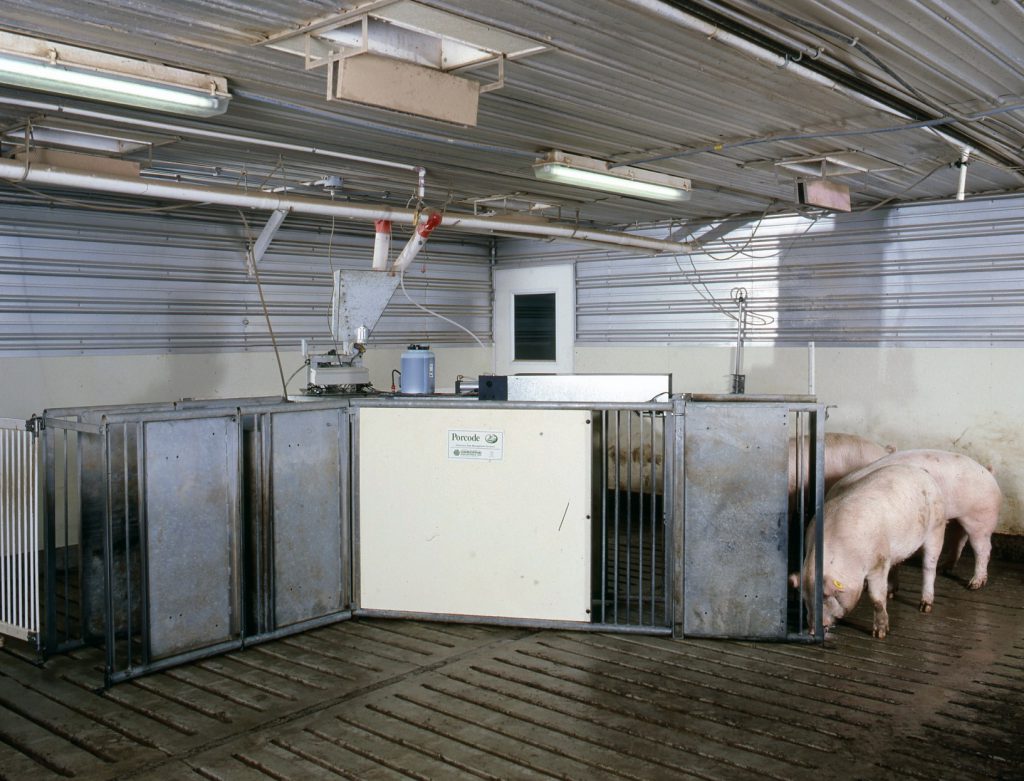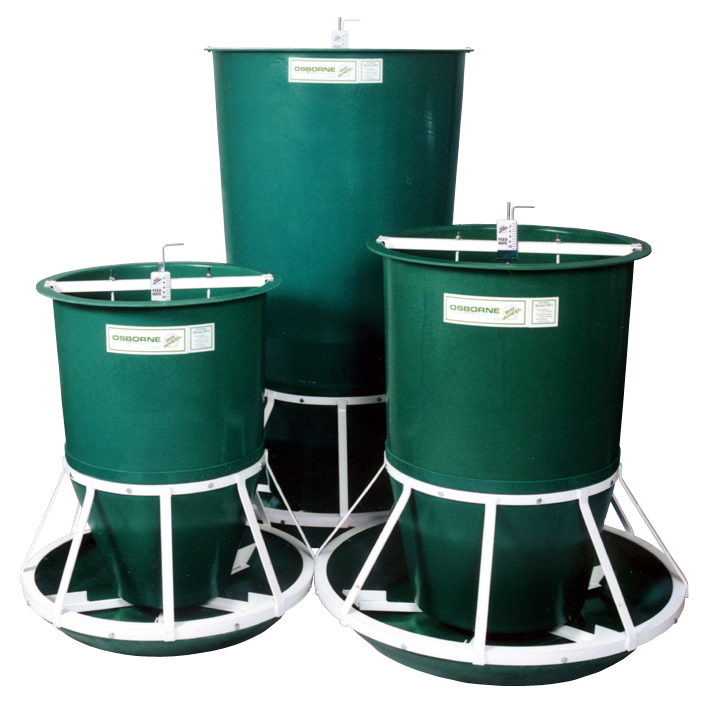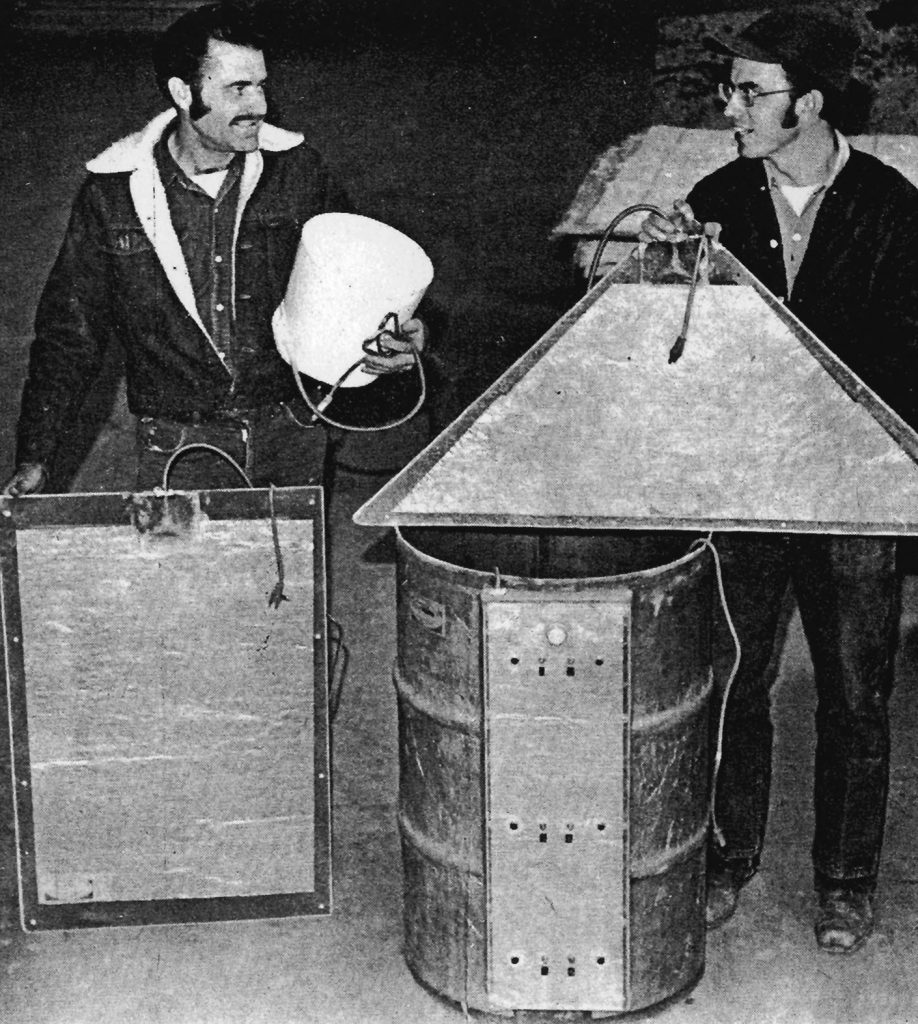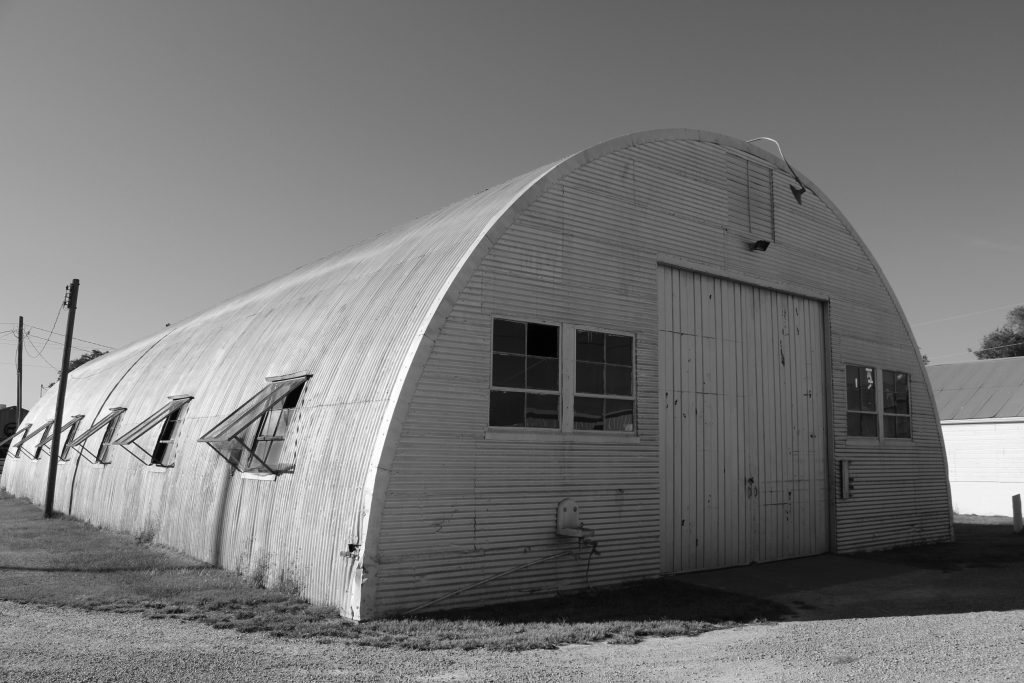Over the course of its 50+ year history, Osborne Industries has experienced dramatic growth and prosperity. Our humble beginnings at the local county fairgrounds and manufacture of a single product has turned into nearly 100 employee owners manufacturing dozens of original livestock management products and custom-molded parts and products for other manufacturers.
2023 marked 50 years in business for Osborne Industries, Inc. The company was founded in 1973 as a new means to provide employment opportunities to the rural population of north central Kansas. Osborne Industries’ commitment to its community and employees is evident in that the original company mission and vision remains unchanged. The company continues offering its livestock products globally and custom molding services across the U.S.A.
On June 9, 2017, Osborne was presented with the Producer Choice Award at the World Pork Expo for their new FAST Start Big Wheel Wean-to-Finish hog feeder. National Hog Farmer’s Kevin Schultz presented the Osborne team with the award, sponsored by the National Hog Farmer publication, and chosen by producers all around the world as their favorite new product among more than 30 entries in the New Product Tour.
On May 5, 2015, Osborne was presented with a Consistency Award for reliable, dependable service by Altec Industries, Inc., the company’s long-time customer of RTM-molded, fiberglass-reinforced composite aerial lift platforms for utility trucks. Osborne’s commitment to Altec is evident in its continuous drive to improve efficiency, quality, and delivery since their first collaboration in the 1980s. Osborne’s on-time delivery reached a high point at greater than 95% in 2015.
Osborne secured its first major multi-million dollar international turn-key farm project in Russia in 2014. The new 700-sow nucleus farm was designed to maximize production like the pig farms of North America and included many Osborne-designed products.
In 2012, Osborne introduced a new marketing plan for their livestock equipment division. “Single Source Swine Solutions” aimed at delivering North American farm design and products to developing markets around the world. The program includes farm design, complete equipment packages, and specialty services.
Long-time OEM customer, Altec Industries, Inc., awarded Osborne one of only three Outstanding Supplier Awards in 2011 – out of nearly 500 suppliers. The award was presented to Osborne owing to exceptional product quality and on-time delivery, combined with a cost performance that continues to remain under the industry’s raw material indexes. Osborne continues to mold thousands of fiberglass-reinforced RTM-molded platforms for Altec, making them one of Osborne’s premiere customers to this day.
One industry advancement to come from the original research by animal scientists and engineers at the Osborne Demonstration Farm was the introduction of automated sorting technology for grow-finish pigs in large groups. In 2002, Osborne introduced its patented Weight Watcher Growth Management System which automatically weighs and sorts animals in large groups so they can be accurately fed diets tailored to their current condition. The Weight Watcher design separates a water pen from two equal feeding pens, each of which are equipped with feeders and two feeding rations. One ration is used to accelerate the growth of lightweight animals and one ration maintains heavyweight animals. As animals move between the water and feeding pens, a stationary weigh scale, the ACCU-ARM Survey Scale, automatically sorts them into their appropriate feeding pen to decrease herd weight variability when the group is ready to market.
Osborne demonstrated its commitment to quality in 2000 when the company acquired its first certification in ISO 9001. Osborne’s Quality Management System (QMS) with ISO 9001 provides the guidance to its manufacturing processes and procedures to control the quality of every product and service at the company. Not only does Osborne have a stringent QMS, the company’s employee owners take personal pride in the quality and workmanship of every product they produce.
In 1994, Osborne added a new molding process known as RIM (Reaction Injection Molding) to their plastic manufacturing capabilities. RIM parts are created when two liquid reactants are mixed and injected into a closed mold. A polymer is formed inside the mold and reaction time is usually expressed in seconds. RIM molding is suitable for higher volumes due to its fast reaction time and low labor requirements.
With the acquisition of Hunday Electronics, Ltd., of the U.K., Osborne became involved in developing the automated measurement of daily feed intake of growing pigs. Using RFID technology and sensitive electronic weighing devices, the FIRE (Feed Intake Recording Equipment) System automatically measures an individual animal’s daily feed intake and other important performance characteristics. Today, the FIRE System is used by more genetics, universities, and research centers than any other performance testing system.
As Osborne continued striving to deliver only the latest and best technology in its livestock equipment division, an investment in a state-of-the-art Research and Demonstration Farm was made in 1992. This fully-integrated, farrow to finish pig farm compared traditional production methods with Osborne’s RFID-driven feeding and weighing systems.
Osborne managed the facility through the early 2000s and perfected much of its automated pig production equipment at the farm.
Electronic-controlled sow feeding (ESF) systems with RFID technology was a relatively new science in 1990. Early European research on the subject was a valuable first step, but most European designs were not compatible with North American hog production. Osborne engineers quickly assumed early responsibility of introducing ESF technology in North America, and in the intervening years, have acquired significant expertise in RFID-controlled animal feeding. Today’s advanced RFID-driven feeding and weighing equipment includes TEAM (Total Electronic Animal Management) ESF, FIRE (Feed Intake Recording Equipment) Performance Testing Feeders, and the Weight Watcher Automatic Weighing and Market-Sorting System for animals housed in group settings.
With the addition of the ACCU-ARM livestock weighing scale to the line of Osborne-branded livestock equipment, Osborne’s reputation in the livestock equipment industry was further solidified. The quiet, almost motionless operation of ACCU-ARM scales continues to delight users to this day. A popular choice for 4-H clubs, county fair groups, and livestock producers and showmen, the scale makes the job of weighing animals a fast and easy process, not only for animals, but those who care for them.
In the mid-1980s, Osborne looked into further expanding its proprietary product offerings in the livestock equipment market. With the acquisition of the AGRI-AIDE Ventilation Company, Inc., of Glenwood, Minnesota, Osborne was able to offer ventilation products for livestock confinement buildings. The company began using its RTM process to manufacture ventilation components like fan housings, air intakes, and fan accessories. By 1984, Osborne’s proprietary line of livestock equipment included heating mats for newborn livestock animals, feeding equipment, and a complete line of barn ventilation products.
With Osborne’s thriving plastics manufacturing business in the animal agriculture industry, the company naturally moved into molding plastic components for other U.S.-based companies. The OEM (original equipment manufacturing) sector of Osborne began with the signing of OMC Lincoln, a company that manufactured the Cushman line of Titan utility vehicles. The company utilized color-matched gel-coated RTM doors, window panels, and roof, manufactured by Osborne, as replacements for heavy and rust-prone metal components. The tolerances and minimal thickness of the fiberglass-reinforced parts allowed Cushman the flexibility to economically ship and export the vehicles unassembled to their customers around the world.
Osborne introduced a new concept in automatic pig feeding in 1981 which revolutionized the way farmers feed their animals. The mechanical-flow feed delivery system requires a pig’s interaction at the feeder – and not gravity – to dispense feed for consumption. The components of the feeder were molded via Osborne’s RTM (Resin Transfer Molding) process. With decades of continued success with the family of Big Wheel Feeders, Osborne has become known throughout the industry as the leader in no-waste pig feeding.
In 1979, Osborne shipped its signature heating pad to Japan, which initiated the company’s export business. Later, Osborne established a network of international distribution partners to help distribute Osborne products around the world. Today, partners in places such as Japan, Canada, Mexico, U.K., Australia, USA, and many more, support the company’s products both domestically and abroad.
Osborne developed a new closed-mold molding process in 1976, later known in the plastics industry as Resin Transfer Molding (RTM). The RTM process involves mixing a liquid resin with a liquid catalyst (hardener) and injecting the material into a closed mold that contains a fiberglass preform. The fast reaction time and ability to tailor materials to meet a wide variety of physical properties like abrasion or flame resistance, quickly propelled RTM to a well-known molding technique.
With the acquisition of Westco Tool & Die, Osborne expanded its metal fabrication capabilities.
Osborne’s first manufactured product was a fiberglass-reinforced composite heating mat designed for livestock use. The Stanfield heat mat was made by the hand-layup method of fiberglass molding, which involved the manual placement of liquid resin over a fiberglass mat and heating element. Production of the Stanfield heat mat took place at the new Osborne Industries facility in the Osborne Industrial Park.
Osborne Industries traces its founding back to 1973 and a 4-H building on the Osborne County Fairgrounds. A group of local business professionals, wanting to provide the small community with job opportunities, founded the company to begin a plastics manufacturing business.


